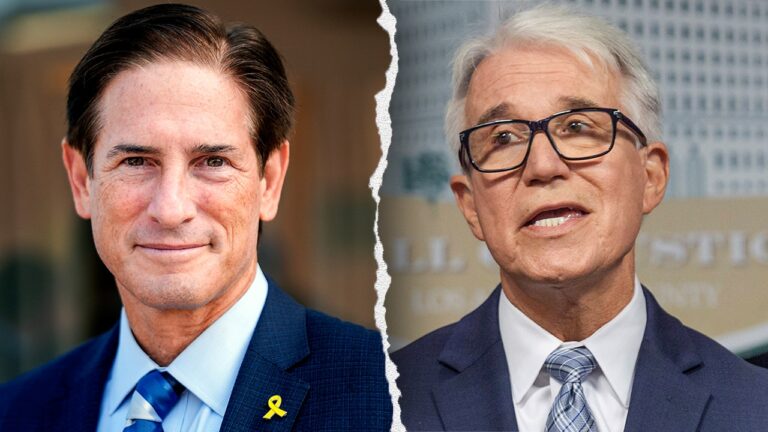Paxton Files Lawsuit Against El Paso Doctor Over Transgender Care
Paxton Sues El Paso Doctor Over Transgender Care
In today’s heated political landscape, where healthcare intersects with individual rights, the latest news to make waves comes from Texas. Attorney General Ken Paxton has launched a lawsuit against a doctor in El Paso, targeting the practices involving transgender care. This situation isn’t just about one physician or one case; it encapsulates a broader debate about healthcare rights, medical ethics, and the complexities of identity. Buckle up, because we’re diving into the nitty-gritty of this case and what it means for the future of healthcare in Texas and beyond.
Understanding the Lawsuit: What’s on the Table?
Imagine walking into your doctor’s office, believing you’ll receive compassionate care tailored to your needs, only to find out that external forces are stepping in to challenge the very nature of the medical care you seek. That’s the reality facing both patients and practitioners with this lawsuit. Paxton’s action against the El Paso doctor is grounded in the assertion that certain medical practices, particularly those involving gender-affirming care for transgender patients, are harmful and not scientifically supported.
A Closer Look at the Claims
Paxton’s lawsuit alleges that the physician failed to adhere to the guidelines as set out by Texas laws regarding gender-affirming treatments. He argues that hormones and surgical procedures offered to transgender individuals can lead to serious health risks and should not be part of standard care practices. The lawsuit claims that these treatments amount to medical malpractice.
But here’s a bold question: Who gets to decide what constitutes proper medical care? Is it a politician wielding legal authority or is it the medical professionals on the ground who have dedicated their lives to understanding patient needs and intricacies? This is where the tension arises.
The Broader Context: Transgender Rights and Medical Ethics
Transgender Healthcare: A Modern Dilemma
Transgender healthcare has emerged as a contentious issue, particularly in conservative regions like Texas. Supporters of transgender rights argue that individuals should have autonomy over their bodies and the right to receive care that aligns with their identity. They view gender-affirming treatment as a vital process that can drastically improve mental health outcomes for transgender individuals.
In fact, studies have shown that access to gender-affirming care can reduce rates of depression, anxiety, and even suicide among transgender individuals. So when a lawsuit threatens these practices, it’s more than just healthcare; it’s a moment that puts the well-being of countless individuals at risk.
The Role of Medical Professionals
On the flip side, there are voices within the medical community who caution against certain procedures, claiming that, without stringent regulation, harm could be done. The debate is intense, with advocates of both sides presenting evidence to support their claims. It raises the question: Should medical professionals, who are trained and experienced in their fields, be solely responsible for these decisions? Or should lawmakers, influenced by societal norms and beliefs, intervene?
The Impact of the Lawsuit: What Could Happen Next?
Potential Consequences for Medical Practice
The lawsuit has put many healthcare providers on alert. If Paxton’s suit succeeds, it could lead to a chilling effect on medical practitioners working with transgender patients. Imagine being a doctor wondering whether you’ll face legal action simply for providing care that is considered best practice by significant portions of the medical community.
- Physicians may limit transgender care offerings.
- Patients might seek care out of state.
- More legal battles could emerge around healthcare rights.
Community Response and Mobilization
The reaction from the community has been a coalition of outrage and support for the El Paso doctor. Advocacy groups are rallying, emphasizing the importance of standing up against perceived injustices and protecting patient rights.
In a way, this lawsuit could be a catalyst for a larger movement—not just around transgender rights but for patient autonomy across the healthcare spectrum. This situation has prompted everyday citizens, healthcare professionals, and activists alike to engage in dialogue and protest.
Breaking Down the Legalities: What Should You Know?
An Overview of Texas Laws on Gender-Affirming Care
Texas has seen an uptick in legislation aimed at regulating gender-affirming care. While many laws are intended to promote safety and ethical practice, they can also limit access to necessary care.
- Current Texas law supports parental consent for minors seeking treatment.
- New legislative efforts are being pushed to restrict healthcare offerings.
- Litigation is becoming a method of enforcement for state regulations.
This legal landscape is pivotal. It can either bolster support for those seeking healthcare services or erode what little autonomy exists for transgender individuals and their families.
Key Players in the Legal Field
Understanding the players involved can shed light on the motivations and potential outcomes of this case:
- Ken Paxton: Texas Attorney General, known for conservative stances and aggressive legal action.
- The El Paso Doctor: A healthcare provider focused on gender-affirming care often cited as a target for legal scrutiny.
- Advocacy Groups: Organizations that defend the rights of transgender individuals and provide crucial support.
These stakeholders influence public opinion, legislation, and, ultimately, the treatment and rights afforded to transgender patients in Texas.
The Public Reaction: Voices from All Sides
Community Activism
In response to the lawsuit, community members and advocacy groups have ramped up efforts to support the doctor and challenge Paxton’s motives. Activism can take many forms—whether that’s organizing protests, drafting petitions, or raising awareness through social media campaigns.
Yes, it’s messy, and yes, there’s a lot of polarization. However, it’s crucial for those involved to raise their voices in support of healthcare equity.
Voices of Concern
Conversely, there are individuals who believe that Paxton’s lawsuit is justified. They argue that the practices of certain healthcare providers should undergo stringent scrutiny in the name of patient safety.
This sentiment doesn’t just come from individuals; even some grassroots organizations are starting to express reservations about the medical practices currently offered. It goes to show just how complex and multifaceted the debate surrounding transgender care really is.
Conclusion: The Bigger Picture
As we wrap up our exploration of Paxton’s lawsuit against the El Paso doctor, it’s important to remember that this battle isn’t just a legal skirmish; it’s a reflection of societal values, medical ethics, and personal rights. The outcome of this case could set precedents that alter the course of transgender healthcare in Texas and possibly beyond.
In the grand scheme of things, it all boils down to a fundamental truth: Healthcare should be a sanctuary for individuals seeking support, not a battleground for political agendas. The stakes could not be higher, so it’s vital for all parties involved—patients, medical professionals, lawmakers—to engage in constructive dialogue rather than conflict.
FAQs
1. What is the basis for Paxton’s lawsuit against the El Paso doctor?
Paxton claims that the doctor’s practices regarding gender-affirming care are inappropriate and could cause harm, labeling them as potentially medically negligent.
2. How might this lawsuit impact transgender healthcare in Texas?
If Paxton’s lawsuit is successful, it may lead to stricter regulations that could limit access to gender-affirming care for Texans.
3. Who supports the El Paso doctor?
Numerous advocacy groups for transgender rights and healthcare equity have rallied behind the physician, asserting the importance of individual autonomy in healthcare.
4. What are the broader implications of this lawsuit?
This case may influence future legislation regarding transgender healthcare, possibly setting a precedent for similar lawsuits nationwide.
5. How are patients reacting to this lawsuit?
Patients and their supporters are expressing concern and fear over the potential loss of access to necessary healthcare and the implications for their wellbeing, leading to increased activism and advocacy efforts.







